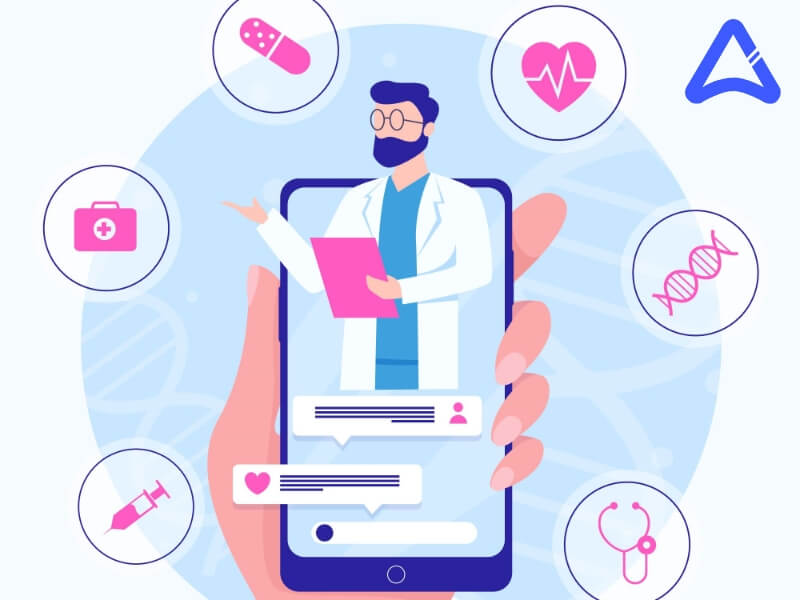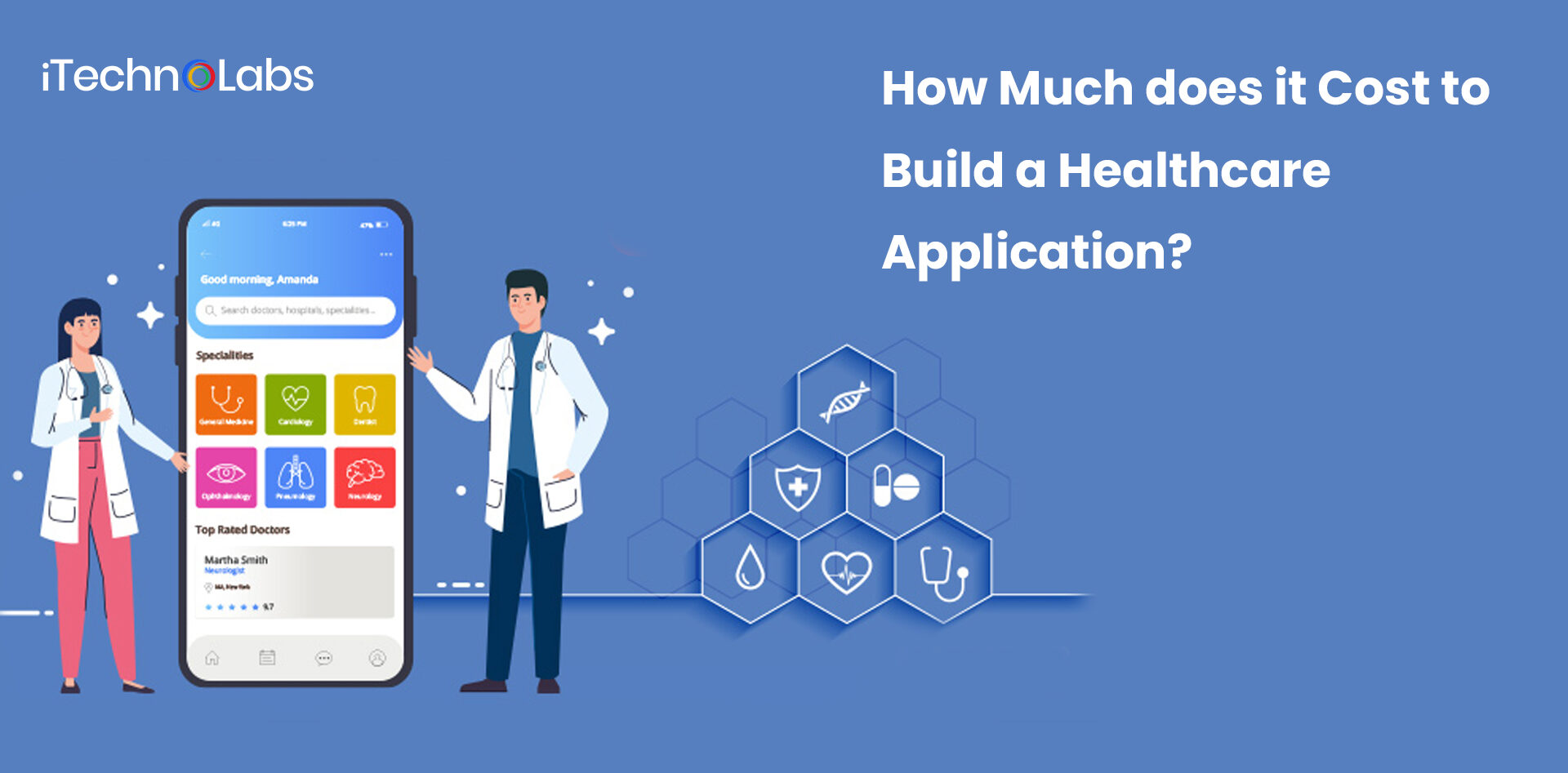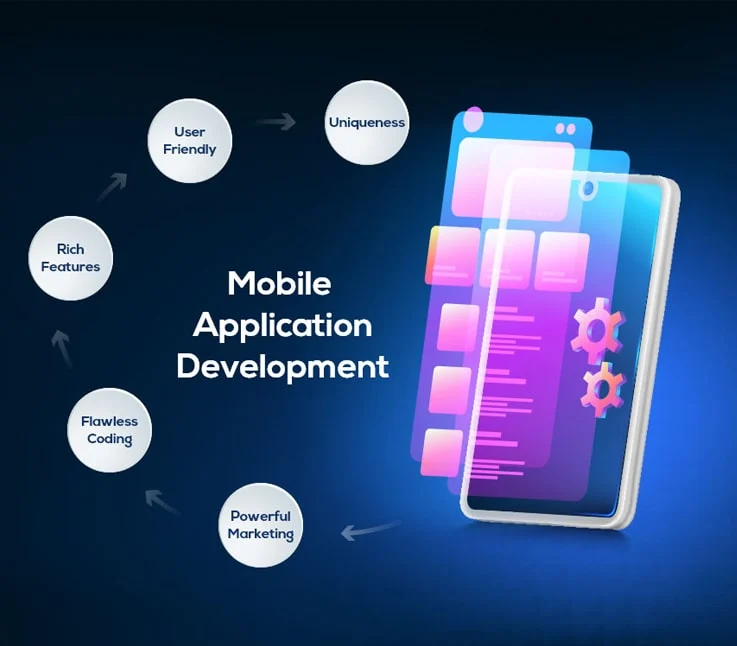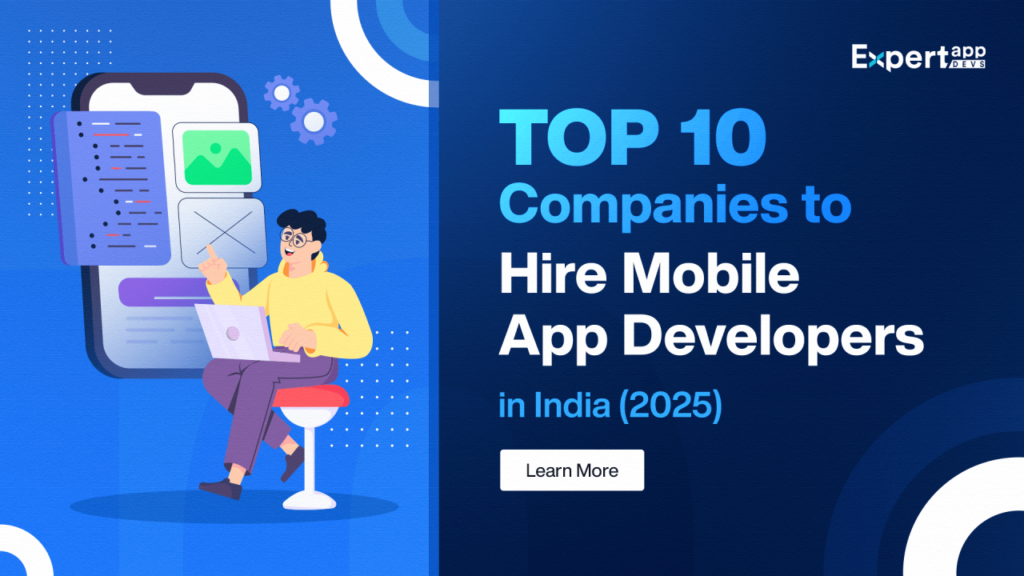Transforming the Future of Medical Services
The healthcare sector is changing quickly, and AI and mobile apps are essential for expanding accessibility, expediting processes, and improving patient care. A healthcare mobile app development company can assist startups, hospitals, and medical facilities in utilizing state-of-the-art technology to increase productivity and offer patients better treatment.
This thorough guide will cover the main advantages, difficulties, and upcoming developments in healthcare app development as well as how mobile applications and artificial intelligence (AI) are transforming the healthcare sector.

The Role of Mobile Apps in Healthcare
1. Enhancing Patient Care
Mobile apps for healthcare offer virtual consultations, appointment scheduling, and real-time access to medical records. Telemedicine apps allow patients to consult doctors, eliminating the need for in-person appointments and guaranteeing prompt medical advice.
2. Remote Monitoring & Wearable Technology
Heart rate, blood pressure, and glucose levels can be continuously monitored thanks to wearable technology that is connected with medical applications. Doctors can use this information to remotely monitor patients’ health and make well-informed judgments..
3. Medication Management & Reminders
Medication adherence and treatment results are enhanced by mobile apps that track prescriptions, remind patients to take their drugs on time, and notify medical professionals if a patient forgets to take a dose.
4. Medical Records & Data Management
Apps for electronic health records (EHRs) securely store diagnostic reports, lab findings, and patient histories, facilitating easy data exchange between medical professionals and cutting down on paperwork.

The Role of AI in Healthcare Mobile Apps
1. AI-Powered Diagnostics & Predictions
Machine learning is used by AI-powered healthcare apps to evaluate medical data, identify illnesses early, and offer predictive analytics, which helps physicians make precise diagnosis. Just like Pharma app.
2. Virtual Health Assistants & Chatbots
AI-powered chatbots lessen the effort of medical staff by helping patients with symptom checks, scheduling appointments, and responding to medical inquiries.
3. Personalized Treatment Plans
To provide better healthcare solutions, AI analyzes patient data to generate personalized treatment plans that take into account lifestyle, genetics, and medical history.
4. Medical Image Analysis
AI programs examine medical pictures (CT, MRI, and X-rays) to find abnormalities, allowing for quicker and more accurate diagnosis.
Key Features of a Healthcare Mobile App
A well-developed healthcare mobile app should include the following features:
- User Registration & Profile Management
- Telemedicine & Video Consultation
- E-Prescriptions & Medication Reminders
- Integration with Wearable Devices
- AI-Based Symptom Checker & Chatbots
- Secure Data Storage & HIPAA Compliance
- Push Notifications & Alerts
- Multi-language Support
The Mobile App Development Process for Healthcare
1. Market Research & Planning
Before beginning development, it is crucial to comprehend user wants, research rivals, and specify key features.
2. Choosing the Right Development Approach
- Native Apps: Perfect for high performance (Kotlin for Android, Swift for iOS).
- Cross-Platform Apps: constructed with frameworks such as React Native or Flutter
3. UI/UX Design for Healthcare Apps
An interface that is easy to use and intuitive is essential for patient engagement. Prototypes and wireframes aid in visualizing the application before development.
4. App Development & AI Integration
The front-end and back-end of the software are constructed by developers, who use AI-powered features for improved functionality.
5. Testing & Compliance Check
To comply with regulatory requirements like HIPAA, GDPR, and FDA approvals, healthcare apps must pass stringent testing.
6. App Deployment & Marketing
Following creation, the app is released with marketing tactics to draw users to the Google Play Store and Apple App Store.
7. Maintenance & Regular Updates
For apps to last a long time, regular monitoring, bug repairs, and feature updates are essential.
Challenges in Healthcare Mobile App Development
- Regulatory Compliance: Fulfilling legal and data privacy requirements, such as GDPR and HIPAA
- Data Security: Defending patient data against online attacks.
- Integration with Existing Systems: Ensuring smooth interaction with hospital administration software.
- User Adoption: Urging physicians and patients to make effective use of the app
Future Trends in Healthcare Mobile Apps
- AI-Powered Virtual Healthcare Assistants – AI-based medical diagnosis and sophisticated chatbots.
- Blockchain for Medical Data Security – Ensuring patient records are safe and impenetrable.
- 5G & IoT Integration –quicker data transfer and patient monitoring in real-time.
- Augmented Reality (AR) & Virtual Reality (VR) – improving surgery and medical education.
- Remote Patient Monitoring (RPM) – AI-powered health monitoring systems for managing long-term illnesses.
Ready to Develop Your Healthcare Mobile App?
Our specialty at Macromodule Technologies is developing mobile apps for healthcare, utilizing AI to produce creative, safe, and intuitive solutions. Regardless of your organization’s size hospital, clinic, or startup our skilled developers can create a personalized healthcare app.
Together, we can make your healthcare app a reality! To begin, get in touch with Macromodule Technologies right now. We discussed about custom software development here.


